Tech-savvy Ukrainians tap into networks of cabbies and couch surfers to help civilians fleeing war
Refugees Welcome: Ukraine is one of Europe’s top tech hubs and volunteers are harnessing apps, websites and social media to help citizens get to safety and find shelter, reports Bel Trew from Khmelnytskyi
From a free “Airbnb for refugees” to Uber-like taxi services for evacuations, tech-savvy Ukrainians are teaming up on websites and apps to help people fleeing Russia’s invasion get a ride away from danger and find shelter across the country.
A movement of volunteers including software developers and politicians have harnessed the internet – be it building websites from scratch and repurposing apps or working with ride-hailing companies – to support civilians suffering from Vladimir Putin’s war as it enters a 10th day.
They have leveraged the expertise of young people in Ukraine, which has long been one of the top tech hubs of Europe and home to one of the largest information technology outsourcing industries on the continent.

Stanislav Khilobochenko, a Ukrainian call centre director, said he and his friends had built a website – Prykhystok – that is “like Airbnb or Couchsurfing for refugees”.
“When the war started, I got together a team of 50 of my customer service agents who agreed to work with us,” the 33-year-old told The Independent.
“At first we just coordinated places for people to stay along the refugee trail out of Ukraine,” he added. “But our call centre now coordinates information like where to get food in Kharkiv, how to buy gasoline in the south, which roads to take from Kyiv to Lviv.”
Other developers have adapted older web-based apps such as OPIR.org, which was created during the 2014 pro-European Union uprising in Ukraine to coordinate the movement of protesters, but now provides detailed maps of local bomb shelters, pharmacies and hospitals.
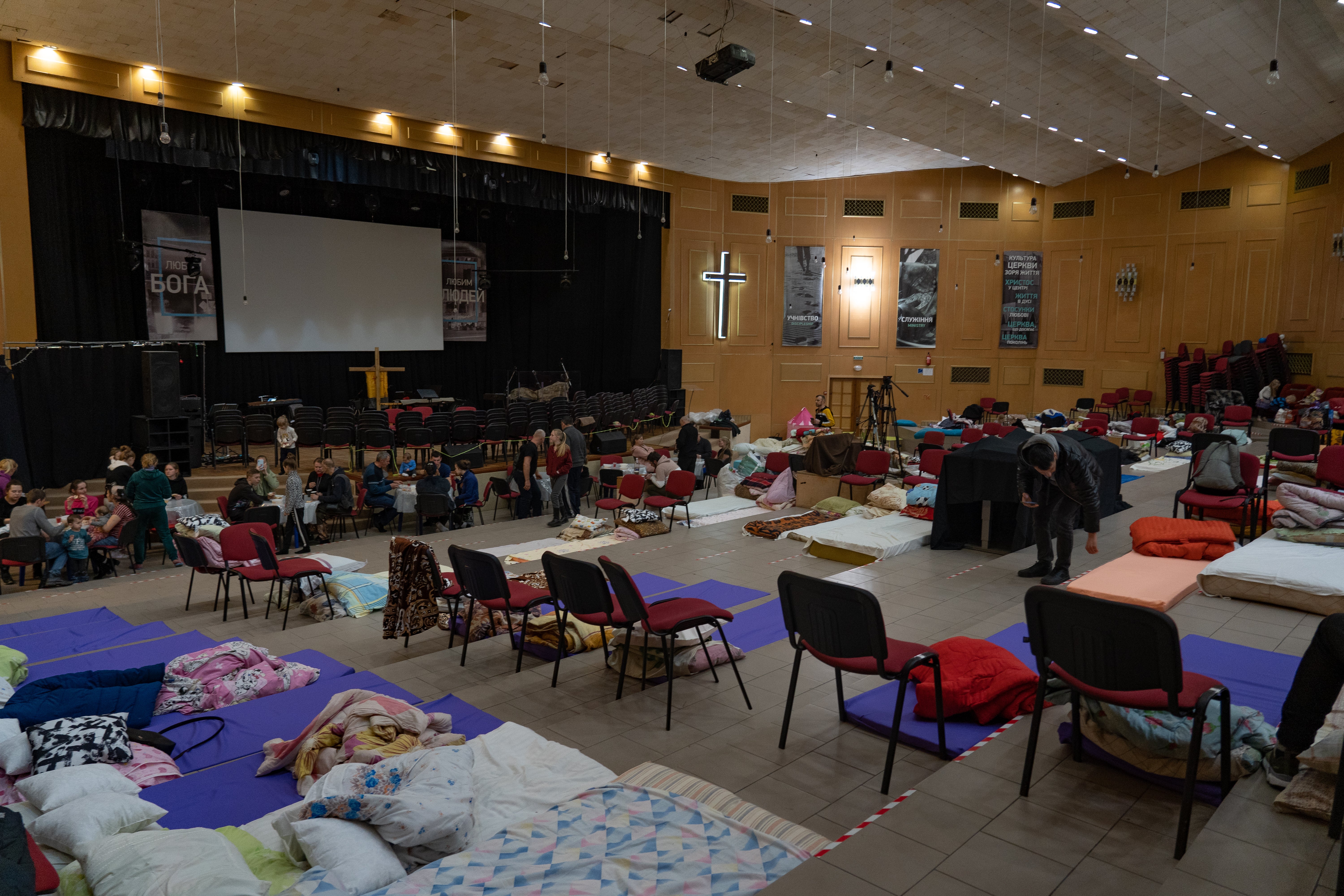
The Prykhystok website was the brainchild of Ukrainian MP Halyna Yanchenko, a mother from Kyiv, who is now trapped under shelling and separated from her two children after she sent them west for safety. She says the website now has 5,000 shelters across the country.
“We realised that the scale of the humanitarian catastrophe will be so big that no single coordinator will be able to handle this work,” Ms Yanchenko said. “So we worked on a decentralised system, that has a hotline for those without access to smartphones or the internet.”
The Independent has set up a petition calling on the UK government to be at the forefront of the international community offering aid and support to those in Ukraine. To sign the petition click here.
The Independent is also raising money for the people of Ukraine – if you would like to donate then please click here for our GoFundMe page.
In a temporary camp for the displaced set up in an evangelical church in Khmelnytskyi, a western crossroads along the refugee trail, The Independent met families who had fled some of the worst-hit areas in the country and used the website to find the shelter.
“We searched online for somewhere to go when we fled Kyiv under bombing,” said Tatiana, 39, who was settling in for the night with her husband Andre and two young children on the floor of the church’s main auditorium.
“We found the website and now we are here.”
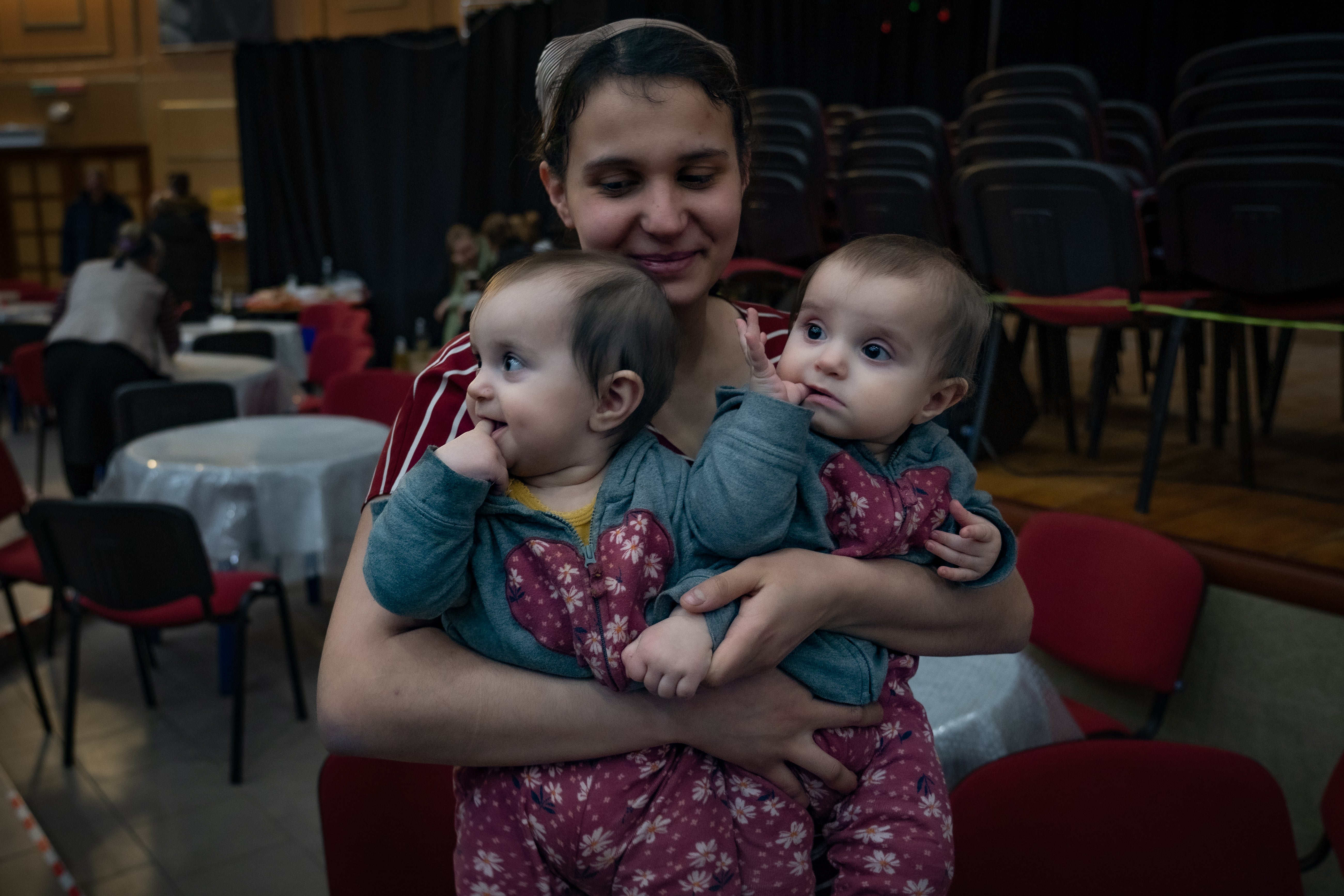
The UN says that a staggering 1.2 million people have fled Ukraine in just a week since Russia launched the biggest ground war in Europe since the Second World War.
It estimates that 12 million people staying in Ukraine and four million fleeing to neighbouring countries in the coming months will need humanitarian aid, and has launched an emergency appeal for $1.7bn (£1.3bn) to cover the soaring costs.
Despite promises of humanitarian corridors, Russia has continued its relentless assault on several of the country’s key cities. Russian troops have encircled and blockaded several large towns in the south, including Mariupol, trying to cut Ukraine off from the Black and Azov seas.
On Saturday, Moscow announced the start of a temporary ceasefire to allow residents of Mariupol and Volnovakha to leave. However, authorities in Mariupol later said the evacuation of civilians had been postponed as Russian forces encircling the city were not respecting the agreed ceasefire.
Following the ceasefire announcement, the Russian defence ministry said a broad offensive would continue in Ukraine.
In this nightmare, civilians are largely relying on themselves to get to safety – and so the network of online resources and tools is proving invaluable.
Software developers Andrii Taganskyi, 38, and Eugene Gusarov, 29, who initially worked on Prykhystok, later pivoted to partnering with existing car-sharing and taxi apps BlaBlaCar and Uklon – the Ukrainian competitor to Uber – to organise carpools and rides for civilians fleeing some of the worst conflict zones.
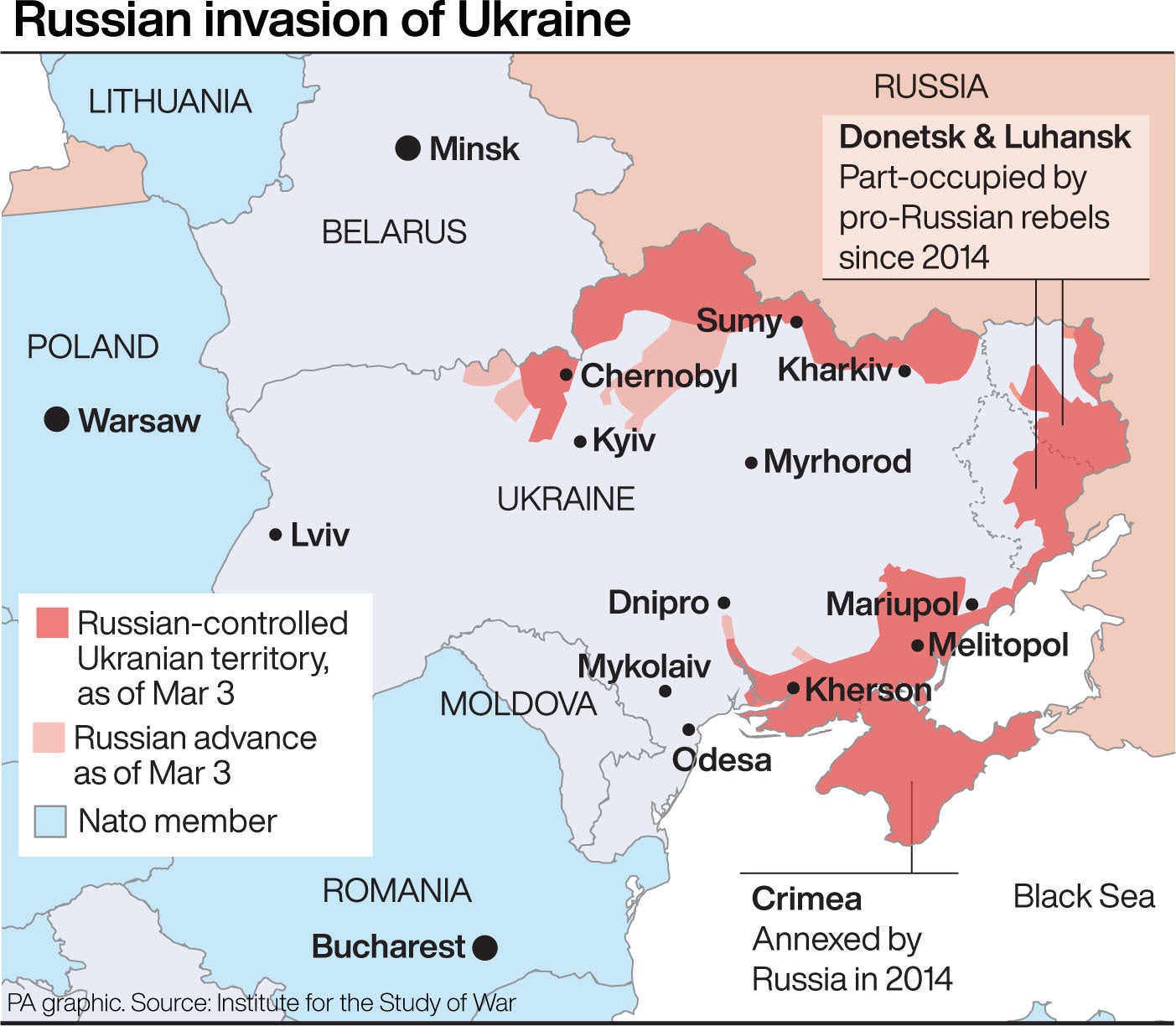
The two men know what it is to be a refugee, not just once but twice, having fled Donestk to Kyiv in 2014, and then left the capital a few days ago for Lviv.
Mr Taganskyi’s parents are trapped in Irpin, on the outskirts of Kyiv, a city that has been under some of the heaviest shelling.
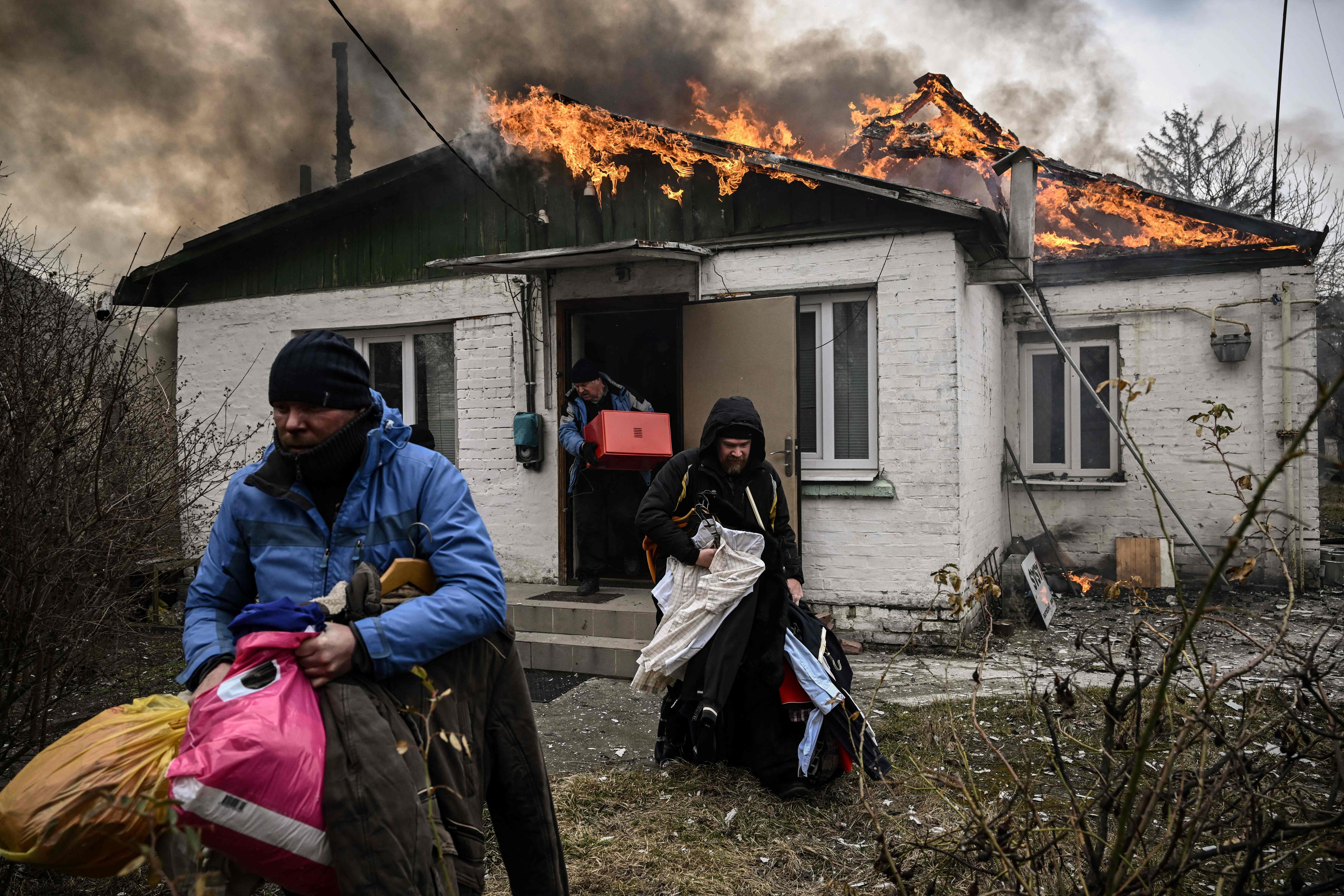
They understand the needs of those who are fleeing.
“We convinced BlaBlaCar to turn off their commission fee and got them to send texts to their 17,000 drivers across Ukraine to call for help moving people to safety,” Mr Toganskyi explained.
They later persuaded Ukrainian insurance companies to send text messages to more than 70,000 bus owners – appealing to them to join the BlaBlaCar initiative.
“In the first three days alone, BlaBlaCar ferried more than 50,000 people to the west of Ukraine to safety.”
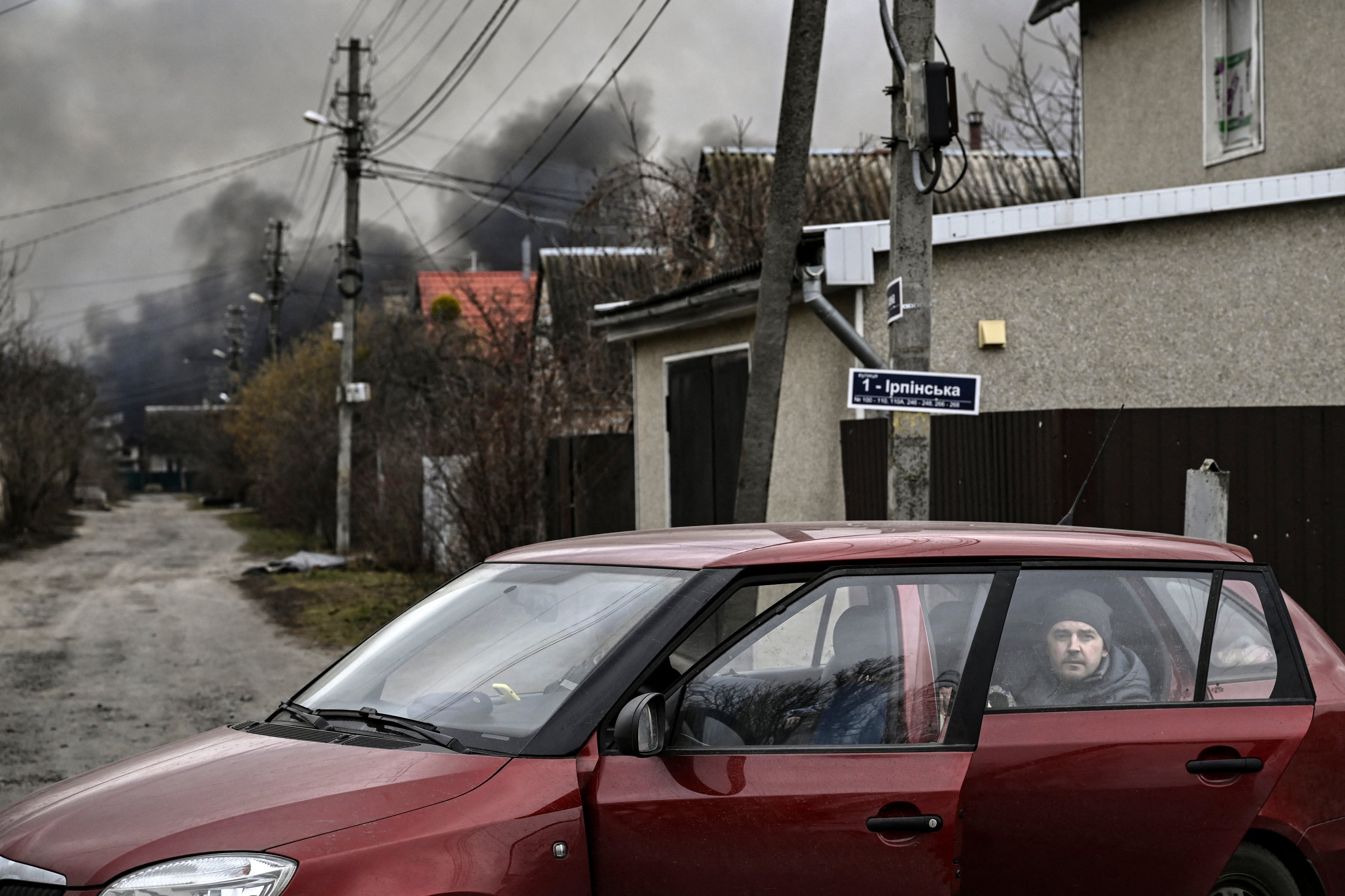
This week they are launching Ukraine Now, an online shelter service that they described as “Couchsurfing for refugees”, which will crowdsource information on both large and smaller shelters for people to stay at on their way out of the country.
Ms Yanchenko, the MP, says her shelter website has now expanded outside of Ukraine, as people in neighbouring and nearby countries have also started opening their homes, churches, and community centres for Ukrainians as the number of refugees rises by the day.
“We foresee that there will be another big wave of refugees as the fighting is getting worse, so we are expanding our initiative,” she told The Independent by phone from Kyiv.
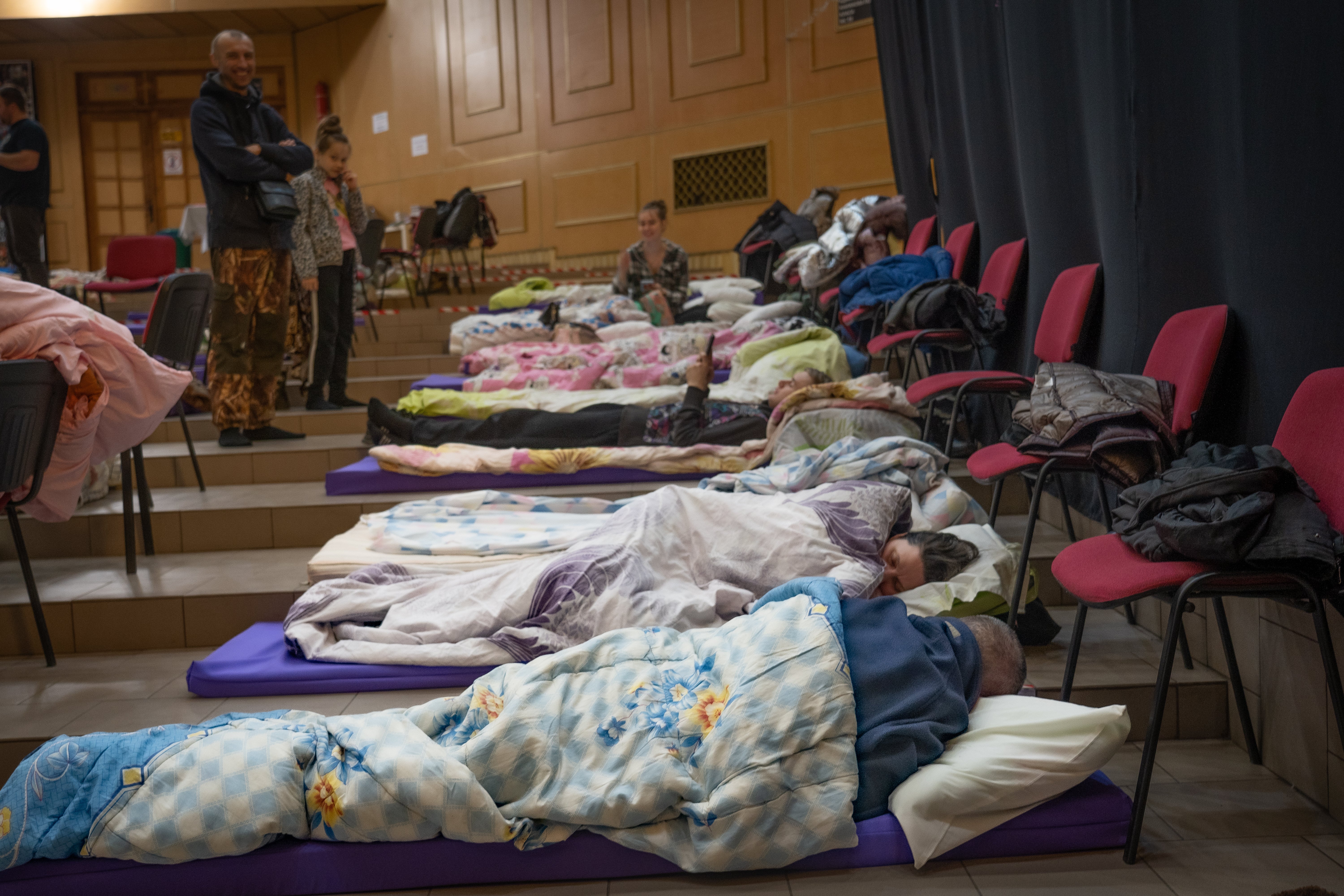
She said that while the apps, websites and social media groups are helping Ukrainians on a day-to-day basis, the country needs the outside world to step up – particularly as the refugee crisis will only pile pressure onto other nations.
“There are hundreds of thousands of stories like mine, being separated from my children who need to flee,” Ms Yanchenko added. “This is not just a huge humanitarian catastrophe for Ukraine but for Europe.
“We are all Europeans and should come together.”
The Independent has a proud history of campaigning for the rights of the most vulnerable, and we first ran our Refugees Welcome campaign during the war in Syria in 2015. Now, as we renew our campaign and launch this petition in the wake of the unfolding Ukrainian crisis, we are calling on the government to go further and faster to ensure help is delivered. To find out more about our Refugees Welcome campaign, click here.
Join our commenting forum
Join thought-provoking conversations, follow other Independent readers and see their replies
Comments


Bookmark popover
Removed from bookmarks